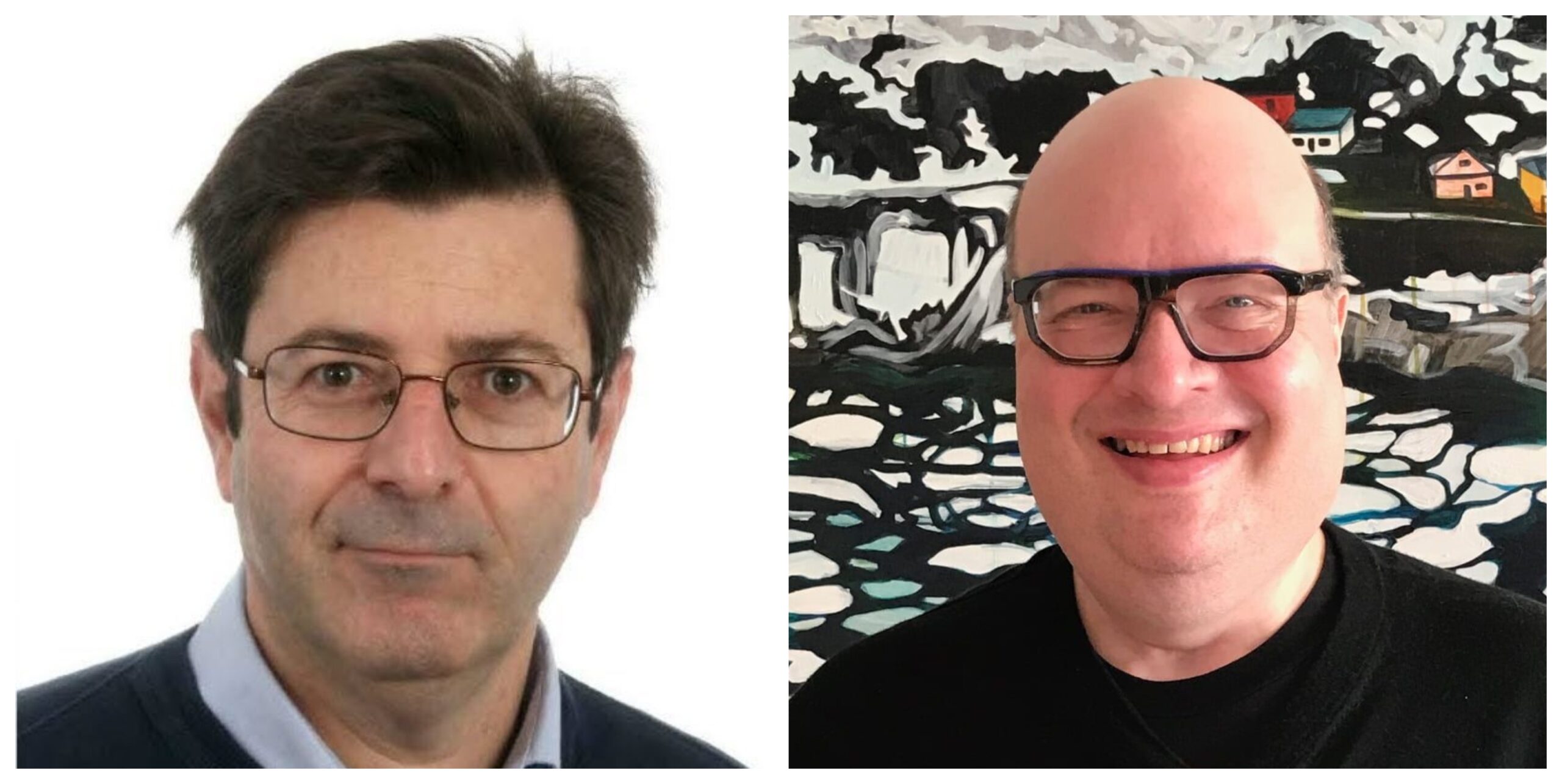
McGill professors Henri Darmon and Jonathan Sterne are among the recently named 2024 Guggenheim Fellows. The prestigious fellowships are awarded to a diverse group of scholars, artists, and scientists and are made on the basis of prior achievement and exceptional promise.
The John Simon Guggenheim Memorial Foundation awarded fellowships to 188 American and Canadian scientists and scholars in the social sciences and humanities, and to writers and artists. Fellows were selected from over 3,000 applicants. The 2024 class of Guggenheim Fellows represents 52 fields, from African studies and data science to music composition and U.S. history.
“Humanity faces some profound existential challenges,” said Edward Hirsch, president of the John Simon Guggenheim Memorial Foundation in a press release. “The Guggenheim Fellowship is a life-changing recognition. It’s a celebrated investment into the lives and careers of distinguished artists, scholars, scientists, writers, and other cultural visionaries who are meeting these challenges head-on and generating new possibilities and pathways across the broader culture as they do so.”
Now in its 99th year, the John Simon Guggenheim Memorial Foundation has granted over $400 million in Fellowships to over 19,000 individuals, among whom are more than 125 Nobel laureates, members of all the national academies, winners of the Pulitzer Prize, Fields Medal, Turing Award, Bancroft Prize, National Book Award, and other internationally recognized honors.
Henri Darmon, Mathematics
Henri Darmon is a Distinguished James McGill Professor in the Department of Mathematics and Statistics. He joined the Faculty of Science in 1994, after having spent spent three years at McGill as an undergraduate from 1984 to 1987. “So, 33 years of my life have been spent at McGill – more than half my life – as a student and faculty member,” he says.
Darmon’s main research interest is number theory.
“C.F. Gauss, the preeminent scientist of the 19th century whose interests embraced much of the knowledge of his day, remarked that ‘Mathematics is the Queen of Science, and Number Theory is the Queen of Mathematics,’” says Darmon. “As an intellectual pursuit, number theory has more affinity with art or poetry than engineering, but in the last 50 years it has found applications to practical problems like efficient data transmission, quantum information theory, and internet security.
“My research in the past 25 years has focused on unearthing constructions of such numbers via analytic processes involving infinite sums which normally destroy the algebraicity. Why these mysterious infinite sums exhibit such unexpected algebraic structure remains poorly understood to this day,” he says.
“The Guggenheim Fellowship describes itself as an award for mid-career scholars and artists. It is pleasant to get a mid-career award at my age, even if the label seems overly optimistic: it means I will have to try to hang in there for another 30 years,” he says with a smile. “Even if this goal is largely aspirational, I feel encouraged by the Fellowship.”
Jonathan Sterne, Film, Video, & New Media Studies
“I was totally surprised, then thrilled,” says Jonathan Sterne when asked for his reaction when he heard from the Guggenheim Foundation. “It is such an honour to be in great company.”
Sterne is James McGill Professor of Culture and Technology in the Department of Art History and Communication Studies. This year, he celebrates his 20th year at McGill.
Trained as a historian and philosopher of media technology, his areas of focus are sound, culture, and disability. Sterne’s work is concerned with the cultural dimensions of communication technologies, especially their form and role in large-scale societies.
One of his major ongoing projects has involved developing the history and theory of sound in the modern west. Beyond the work on sound and music, he has published dozens of articles and book chapters that cover a wide range of topics in media theory and historiography; disability studies; science and technology studies; new media; and cultural studies. He says the Guggenheim Fellowship will further support his work in these areas,
“Most simply, it will provide extra time and resources to work on a book about sound and artificial intelligence,” he says. “But I suspect that it will also provide other intangible benefits, like opportunities to meet other scholars, artists, and journalists who will push my thinking in new directions.”

Please note that McGill alumnus Ned Blackhawk from Yale University also won a 2024 Guggenheim Fellowship.